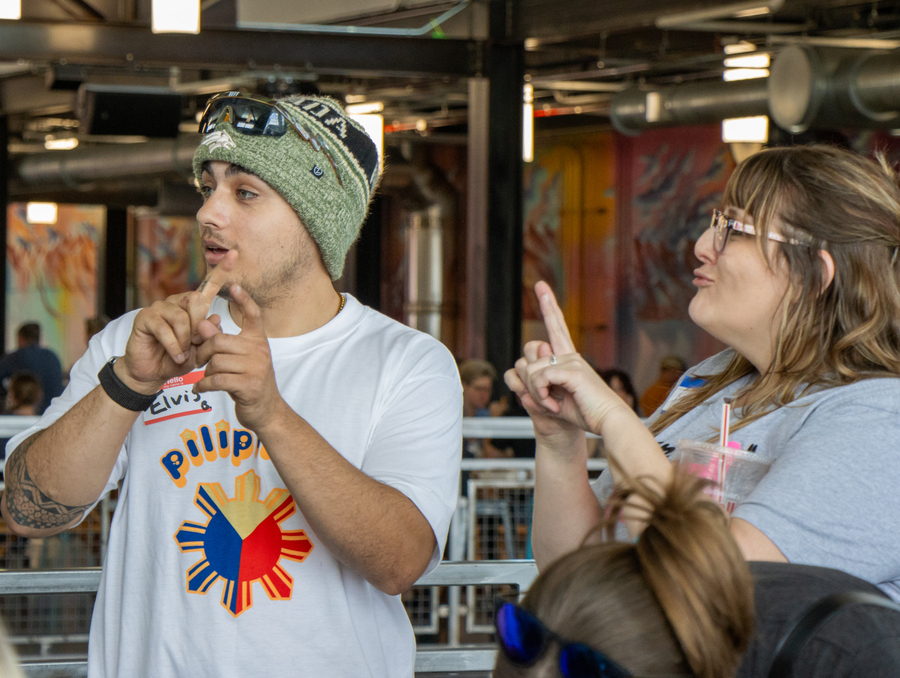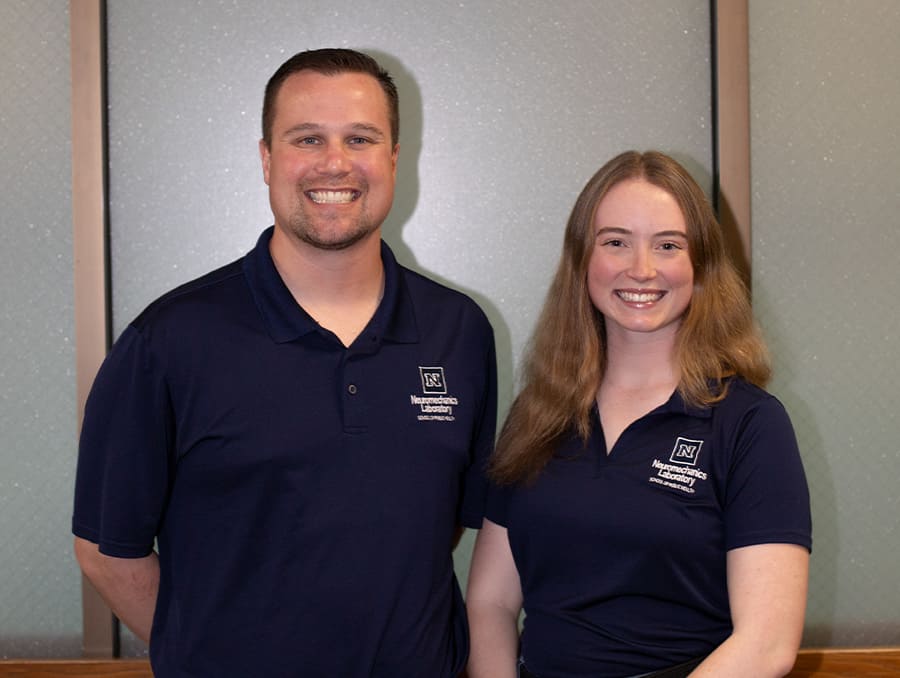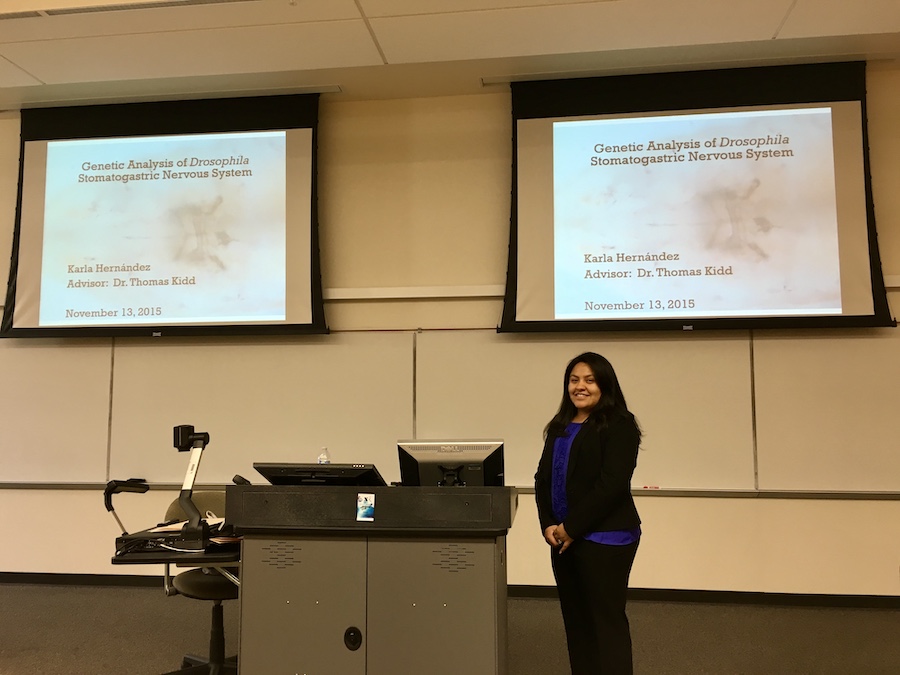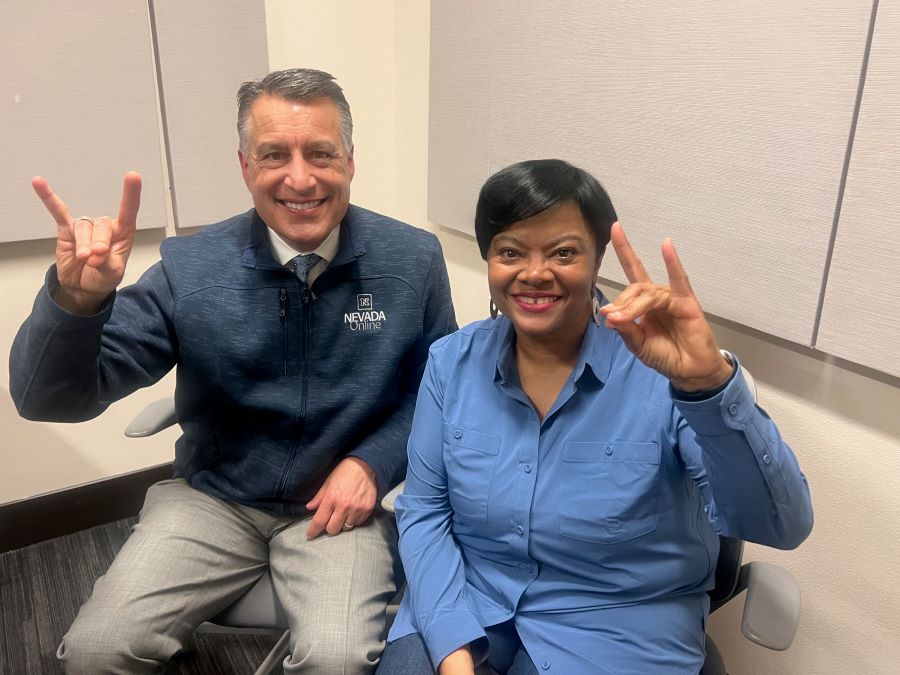Well-known as a research institution, The University of Nevada, Reno more than doubled its research funding in the last decade. Less well-known is how many of those research dollars are available to undergraduate students in all disciplines.
“The University is committed to undergraduate research,” Mike Collopy, assistant vice president for research and director of Office of Undergraduate Research, said. “Research increases knowledge retention, and keeps students focused and on track to graduation, and often stimulates interested in attending grad school.”
Established in 2003, the Office of Undergraduate Research promotes research opportunities for undergraduate students, provides support for research grant proposal writing and maintains a network of faculty mentors to guide research projects, including its commitment to the climate change research scholarship program sponsored by the National Science Foundation, the state of Nevada and the Nevada Experimental Program to Stimulate Competitive Research.
The current Nevada EPSCoR Climate Change Project is intended to develop system-wide capacity to conduct research on the effects of regional climate change on ecosystems, to advance communication between researchers and policy makers, and to improve public education on climate change in Nevada. The EPSCoR Undergraduate Research Opportunity Award scholarships provide $4,500 for the student and $1,000 for the faculty mentor, and are offered for both academic year and summer research.
Proposals for the NSF EPSCoR 2010 summer program are due March 1. Research must be conducted during summer 2010.
University-funded General Undergraduate Research Awards are competitive research grants of up to $1,200 available to all undergraduate students in any field of study, regardless of class standing. Proposals, including a budget and thorough project description, are due March 8, and will be judged on merit, originality, feasibility and mentor commitment. Research must be completed during the 2010-2011 academic year.
Last year, projects from such disciplines as the physical, environmental and biological sciences, English literature, art history, photography and sociology were funded under the GURA program.
“Research can really motivate,” Collopy said. “Students can go to class and take notes and tests, but hands-on experience can create excitement and enthusiasm for learning, making it easier and enjoyable. It can also provide glimpses into possible future careers.”
Collopy said the office funds about 60 research scholarships a year through its various programs.
Proposal requirements, applications and other information on undergraduate research opportunities can be found at the University of Nevada Undergraduate Research.











